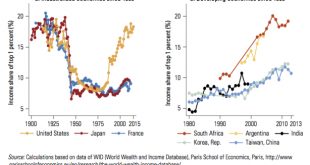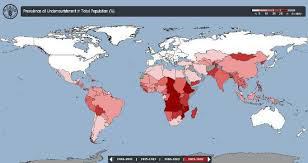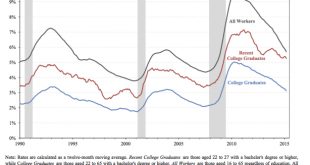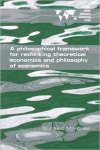In growth accounting, 1+1 might sometimes add up to 1,5 instead of 2. With good reasons. Or at least: with reasons. Let me explain. Economists – and others – tend to look at production when they define ‘growth’. But we might as well look at consumption. But: what is consumption? It’s the use of stuff. And of services. But economists define it as the purchase of stuff. And services. Which leads to some problems. The value of purchases is, by definition, measured using prices. And prices...
Read More »Sherlock Holmes of the year — ‘Nobel prize’ winner Bengt Holmström
from Lars Syll Oliver Hart and Bengt Holmström won this year’s ‘Nobel Prize’ in economics for work on applying contract theory to questions ranging from how best to reward executives to whether we should have privately owned schools and prisons or not. Their work has according to the prize committee been “incredibly important, not just for economics, but also for other social sciences.” Asked at a news conference about the high levels of executive pay, Holmstrom said, It is somehow demand...
Read More »Taking on global poverty and inequality
from David Ruccio To read National Public Radio’s [ht: ja] article on the latest World Bank report on Poverty and Shared Prosperity: Taking on Inequality, you’d think the problem of global poverty was well on the way to being solved. Is that just wishful thinking? In terms of the headline numbers, the author of the article is correct: In 2013, fewer than 800 million people lived on less than $1.90 a day. That’s less than 11 percent of the global population. As recently as 1990, about 35...
Read More »The Market and Nobels
from Peter Radford As I awake from my self-imposed slumber and re-survey the state of economics: Nothing has changed. This is predictable, and, I submit, is the most predictable phenomenon within the ambit of the discipline. Economics is in disrepute, and its current elite are determined to keep it there. The latest ersatz Nobel prize went to a couple of guys who theorize a lot about contracts. This is the kind of work that now dominates much of economics. Tinkering with mathematics,...
Read More »Hunger as the primary economic problem
You have until 30 October to submit to [email protected] a paper for the WEA online conference Food and Justice. from Asad Zaman If any group of concerned citizens would gather to discuss economic problems, it would seem natural to begin with the problem of feeding the hungry. Strangely enough, one would not encounter this problem within a standard course of study of economic theory at any of the leading universities throughout the world. This is due to two major mistakes made...
Read More »Dean Baker Crab Feed Pics
Dean Baker Crab Feed
Read More »“The Nobel prize in economics takes too little account of social democracy”
From today’s Guardian The Nobel prize in economics takes too little account of social democracyAvner Offer The Nobel prize in economics will be announced today. For economists, it is the pinnacle of reputation. When the word Nobel becomes attached to a winner’s name, his word acquires newsworthy authority (only one woman, Elinor Ostrom, has won the prize so far). The prize matters to everyone else too, because of market liberalism, which advocates marketisation, deregulation,...
Read More »“Children of the Great Recession”
from David Ruccio In a recently leaked audio file (from a private fundraiser in February), Hillary Clinton referred to them as “children of the Great Recession. . .living in their parents’ basement,” who “feel they got their education and the jobs that are available to them are not at all what they envisioned for themselves. And they don’t see much of a future.”* Well, as it turns out, the children of the Great Recession, especially those who completed college in recent years, were right:...
Read More »Re-thinking Theoretical Economics – new WEA book
New paperback from WEA BooksA Philosophical Framework for Rethinking Theoretical Economics and Philosophy of Economics by Gustavo Marquesis now available from the Amazon pages listed below Here are links to the book’s pages on the various AmazonsUnited States $18.50, Brazil, Canada, France, Germany, India, Italy, Japan, Mexico, Spain, United Kingdom £14.25 This book argues that mainstream theoretical economics has been a basically misdirected effort at creating and exploring imaginary...
Read More »Crash and learn?
from David Ruccio The case for changing the way we teach economics is—or should be—obvious. It certainly is apparent to the students of Manchester University’s Post-Crash Economics Society and to the other 44 student groups, members of Rethinking Economics, pressing for pedagogical changes on campuses from Canada to Italy and from Brazil to Uganda. But as anyone who teaches or studies economics these days knows full well, the mainstream that has long dominated economics (especially at...
Read More » Real-World Economics Review
Real-World Economics Review







